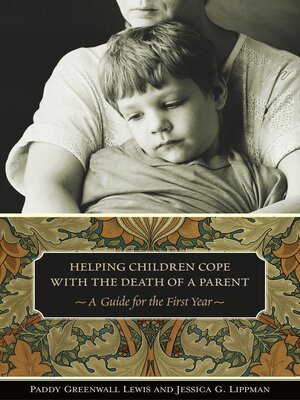Helping Children Cope with the Death of a Parent
ebook ∣ A Guide for the First Year · Contemporary Psychology
By Paddy Greenwall Lewis

Sign up to save your library
With an OverDrive account, you can save your favorite libraries for at-a-glance information about availability. Find out more about OverDrive accounts.
Find this title in Libby, the library reading app by OverDrive.



Search for a digital library with this title
Title found at these libraries:
| Library Name | Distance |
|---|---|
| Loading... |
The mourning of a parent's death can take many years—for some it may take a lifetime. The first year of separation, however, is often the most difficult and heart wrenching. The first birthday, holiday, spring, summer, autumn, and winter spent without the loved one often revives or increases the pain. This unique guide is organized according to a timeline of a child's first year of mourning the loss of a parent. It is a warm, insightful, yet practical guide to help the families and community members surrounding a child who has suffered such a loss to anticipate and cope with the many difficulties that arise. Practical suggestions for providing comfort, information, and advice are provided for adults struggling to help children endure the trauma. A range of difficult situations that bereaved children encounter are identified, helping to prepare adults for a child's potential reactions and providing them with realistic coping strategies.
Lewis and Lippman, child psychologists who have provided therapy to children who have lost a parent, suggest answers to questions that these children frequently ask. They offer methods for dealing with particularly difficult times such as birthdays, and share practical advice for everyday situations and events. They begin with helping the child through anticipation of death, if it is expected, or through the initial shock of unexpected death. Poignant vignettes from the therapists' experience dealing with young and older children are included.
Lewis and Lippman, child psychologists who have provided therapy to children who have lost a parent, suggest answers to questions that these children frequently ask. They offer methods for dealing with particularly difficult times such as birthdays, and share practical advice for everyday situations and events. They begin with helping the child through anticipation of death, if it is expected, or through the initial shock of unexpected death. Poignant vignettes from the therapists' experience dealing with young and older children are included.







